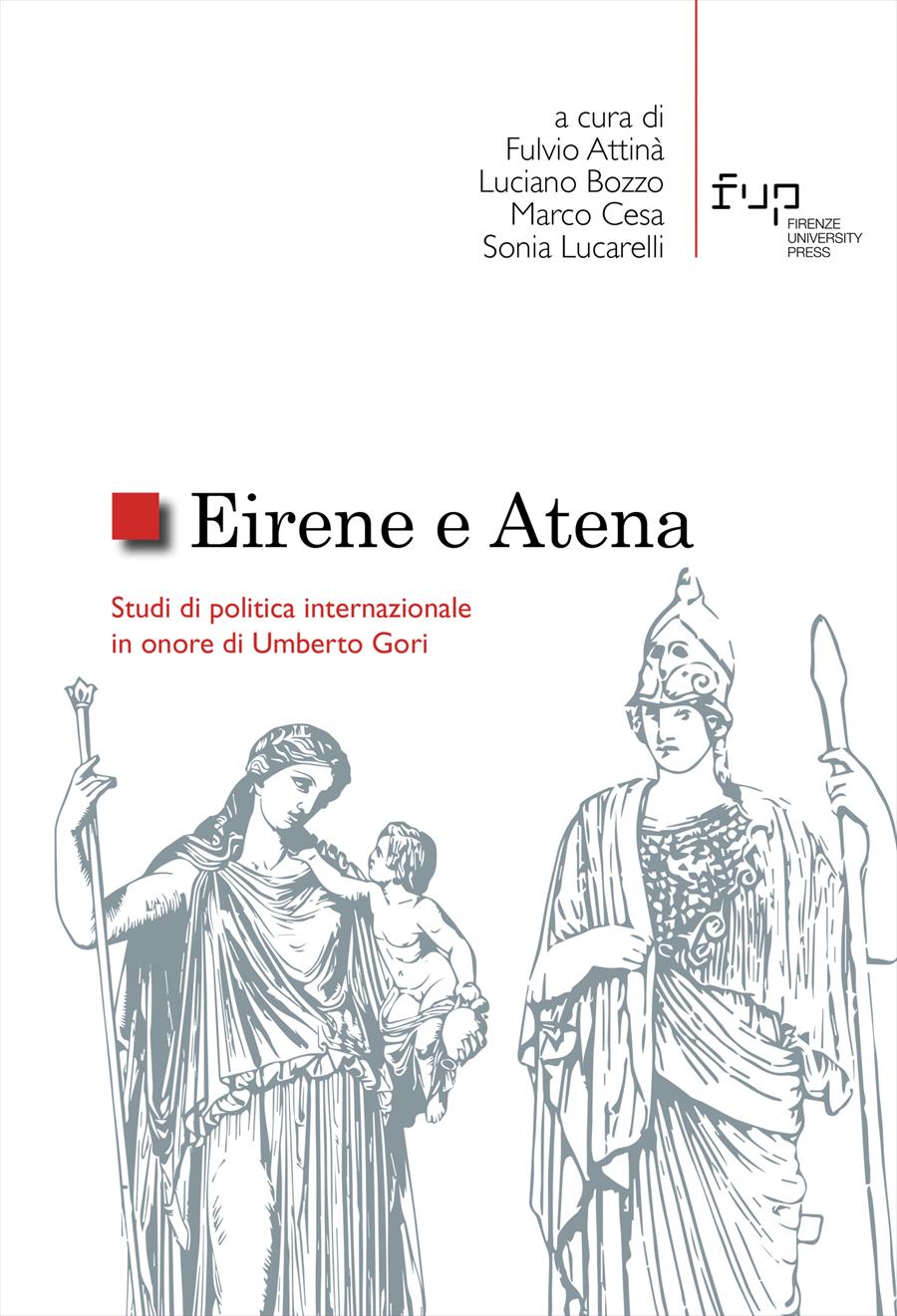- Eirene e Atena
- Edited by Fulvio Attinà, Luciano Bozzo, Marco Cesa, Sonia Lucarelli
Il coordinamento internazionale in risposta alla pandemia Covid-19
- Fabio Fossati
- © 2022 Author(s) |
- CC BY 4.0
- DOI: 10.36253/978-88-5518-595-0.07
Collaboration is an intense cooperation aimed at realizing common objectives; coordination wants to avoid adverse interests. There is anarchy when governments make unilateral decisions. In conflicts actors have incompatible scopes. The World Health Organization implemented some standards to help governments to manage the sanitary emergence. The communication network of health technicians has informally pushed governments to apply those standards. Eastern Asian states were faster in their reactions than Western countries. Coordination worked with the diffusion of informal norms and not of codified and binding regimes of international law. Sweden did not fully apply those standards, but without deep objections and with ad hoc exceptions. Taiwan’s standards were even more efficient than WHO.
- Keywords:
- Coordination,
- Conflict,
- Anarchy,
- International regimes,
- Pandemic,
University of Trieste, Italy - ORCID: 0000-0002-0510-7523
- Androniceanu, Armenia. 2020. “Major structural changes in the EU policies due to the problems and risks caused by Covid-19.” Administratie si Management Public 34, 8: 137-49.
- Boschele, Marco. 2020. “Covid-19 science policy, experts, and publics: why epistemic democracy matters in ecological crises.” OMICS: A Journal of Integrative Biology 24, 8: 479-82.
- Fossati, Fabio. 2017. Interests and stability or ideologies and order in contemporary world politics. Newcastle: Cambridge Scholars Publishing.
- Fossati, Fabio. 2019. “Obama’s and Trump’s foreign policies towards difficult democracies.” In ‘Democrazie difficili’ in Europa, Asia, nord Africa e Medio Oriente: competizione partitica, conflitti e democratizzazione, a cura di Diego Abenante, 39-64. Tri
- Galtung, Johan. 1981. “Western civilization: anatomy and pathology.” Alternatives 7, 1: 145-69.
- Gedivisual, “Coronavirus: le vaccinazioni nel mondo.” <https://lab.gedidigital.it/gedi-visual/2020/coronavirus-le-vaccinazioni-nel-mondo/> (2011-11-30).
- Goniewicz, Krzysztov, Amir Khorram-Manesh, Attila J. Hertelendy, Mariusz Goniewicz, Katarzyna Naylor, and Frederick M. Burkle Jr. 2020. “Current response and management decisions of the European Union to the Covid-19 outbreak: a review.” Sustainability 12
- Gori, Umberto. 1979. Natura e orientamenti delle ricerche sulla pace (peace research). Milano: FrancoAngeli.
- Iwasaki, Akiko, and Nathan D. Grubaugh 2020. “Why does Japan have so few cases of Covid-19?” EMBO Molecular medicine 12.
- Kokudo, Norihiro, and Haruhito Sugiyama 2020. “Call for international cooperation and collaboration to effectively tackle the Covid-19 pandemic.” Global Health & Medicine 2, 2: 60-2.
- Kupferschmidt, Kai, and Jon Cohen 2020. “Can China’s Covid-19 strategy work elsewhere?” Science 367, 6482: 1061-62.
- Lancet Editorial. 2020. “Covid-19 in the USA: a question of time.” The Lancet 395.
- Lavazza, Andrea, and Mirko Farina. 2020. “The role of experts in the Covid-19 pandemic and the limits of their epistemic authority in democracy.” Frontiers in Public Health 8, 356.
- Lee, Doyeon, Yoseob Heo, and Keunhwan Kim. 2020. “A Strategy for international cooperation in the Covid-19 pandemic era: focusing on national scientific funding data.” Healthcare 8, 204.
- Lu, Ning, Kai-Wen Cheng, Nafees Qamar, Kuo-Cherh Huang, and James A. Johnson. 2020. “Weathering Covid-19 storm: successful control measures of five Asian countries.” American Journal of Infection Control 48, 7: 851-52.
- Stein, Arthur A. 1983. “Coordination and collaboration: regimes in an anarchic world.” In International regimes, edited by Stephen D. Krasner, 115-40. Ithaca: Cornell University Press.
- Stoppino, Mario. 1995. Potere e teoria politica. Milano: Giuffré.
- Trevisan, Maurizio, Cu Le Linh, and Vu Le Anh. 2020. “The Covid-19 pandemic: a view from Vietnam.” American Journal of Public Health 110, 8: 1152-53.
- Wang, C. Jason, Chun Y. Ng, and Robert H. Brook. 2020. “Response to Covid-19 in Taiwan. Big data analytics, new technology, and proactive testing.” JAMA 323, 14: 1341-42.
- Wikipedia, “National responses to the Covid-19 pandemic.” <https://en.wikipedia.org/wiki/National_responses_to_the_COVID-19_pandemic> (2011-11-30).
- Wong, John E. L., Yee Sin Leo, and Chor Chuan Tan. 2020. “Covid-19 in Singapore. Current experience: critical global issues that require attention and action.” JAMA 323, 13: 1243-44.
- Worlometers, “Covid-19 Coronavirus Pandemic.” <https://www.worldometers.info/coronavirus/> (2011-11-30).
Chapter Information
Chapter Title
Il coordinamento internazionale in risposta alla pandemia Covid-19
Authors
Fabio Fossati
Language
Italian
DOI
10.36253/978-88-5518-595-0.07
Peer Reviewed
Publication Year
2022
Copyright Information
© 2022 Author(s)
Content License
Metadata License
Bibliographic Information
Book Title
Eirene e Atena
Book Subtitle
Studi di politica internazionale in onore di Umberto Gori
Editors
Fulvio Attinà, Luciano Bozzo, Marco Cesa, Sonia Lucarelli
Peer Reviewed
Number of Pages
208
Publication Year
2022
Copyright Information
© 2022 Author(s)
Content License
Metadata License
Publisher Name
Firenze University Press
DOI
10.36253/978-88-5518-595-0
ISBN Print
978-88-5518-594-3
eISBN (pdf)
978-88-5518-595-0
Series Title
Studi e saggi
Series ISSN
2704-6478
Series E-ISSN
2704-5919
